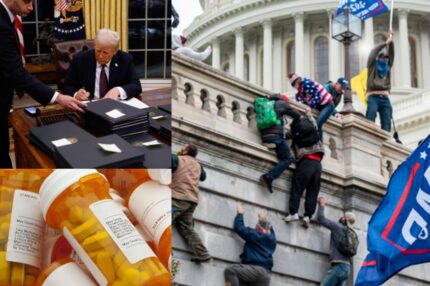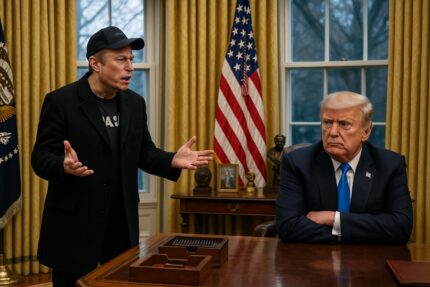On his first day in office, President Donald Trump issued a sweeping executive order granting full pardons to approximately 1,500 individuals involved in the January 6th Capitol riots. This controversial move has drawn sharp criticism from political opponents and human rights advocates while receiving widespread praise from his loyal supporters. Speaking at the signing ceremony, Trump described the event as fulfilling a critical campaign promise.
“So this is January 6th, these are the hostages, approximately 1,500 were pardoned. Full pardon. You have about six commutations in there, but we are doing further research. This is a big one. We hope they come out tonight,” Trump declared, defending his decision. He added that this action marked the beginning of a broader initiative to address what he called “injustices” stemming from the prosecution of his supporters. While Republicans hailed the move as restorative, Democrats and legal analysts warned it could embolden further extremist actions.
Overturning Key Policies: A Reversal on Drug Prices
In a surprising pivot, Trump also repealed an executive order introduced by the Biden administration aimed at reducing prescription drug costs for Medicare and Medicaid recipients. The original policy had garnered bipartisan support for its focus on alleviating financial burdens on low-income families and the elderly. By reversing this measure, Trump signaled his intention to prioritize market-driven solutions over federal intervention in healthcare.
Critics argue the repeal undermines efforts to address rising drug prices, which remain a significant concern for millions of Americans. Health policy experts warn that without cost containment measures, many individuals reliant on Medicare and Medicaid could face higher out-of-pocket expenses. Trump defended his actions, asserting that government interference in pricing discouraged innovation and competition within the pharmaceutical industry.
Dismantling Diversity Initiatives
One of Trump’s most contentious moves was an executive order eliminating diversity, equity, and inclusion (DEI) initiatives across federal agencies. The order calls for a return to merit-based hiring and promotion practices, arguing that DEI programs foster division and inequality.
The policy has sparked outrage among civil rights organizations, who view it as a direct attack on progress made toward greater representation and inclusion in federal employment. “This is a slap in the face to minorities and underrepresented groups who have fought tirelessly for equal opportunities,” said a spokesperson for the NAACP. Proponents of the order, however, claim it restores fairness by emphasizing qualifications and performance over identity markers.
Climate and Foreign Aid Policies Face Rollbacks
In alignment with his campaign promises, Trump also announced the withdrawal of the United States from the 2015 Paris Climate Agreement. This decision underscores his administration’s focus on bolstering domestic energy production and reducing regulatory barriers for fossil fuel industries. Environmental groups have condemned the move, warning it could have catastrophic consequences for global efforts to combat climate change.
Additionally, Trump paused all U.S. foreign aid programs for 90 days, pending a comprehensive review to ensure alignment with his administration’s objectives. While supporters argue the review is necessary to eliminate inefficiencies, critics contend it jeopardizes humanitarian assistance and destabilizes international alliances.
As Donald Trump’s administration begins, the flurry of executive orders signals a dramatic shift in U.S. policy. While some hail these moves as a decisive effort to fulfill campaign promises, others worry they set a dangerous precedent, threatening equity, climate stability, and global partnerships.














